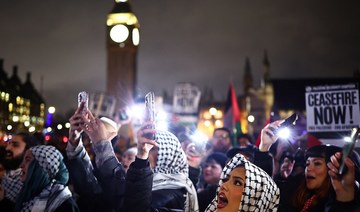Afghan special forces soldiers who fought alongside American troops and then fled to Iran after the chaotic US withdrawal last year are now being recruited by the Russian military to fight in Ukraine, three former Afghan generals told The Associated Press.
They said the Russians want to attract thousands of the former elite Afghan commandos into a “foreign legion” with offers of steady $1,500-a-month payments and promises of safe havens for themselves and their families so they can avoid deportation home to what many assume would be death at the hands of the Taliban.
“They don’t want to go fight — but they have no choice,” said one of the generals, Abdul Raof Arghandiwal, adding that the dozen or so commandos in Iran with whom he has texted fear deportation most. “They ask me, ‘Give me a solution. What should we do? If we go back to Afghanistan, the Taliban will kill us.’”
Arghandiwal said the recruiting is led by the Russian mercenary force Wagner Group. Another general, Hibatullah Alizai, the last Afghan army chief before the Taliban took over, said the effort is also being helped by a former Afghan special forces commander who lived in Russia and speaks the language.
The Russian recruitment follows months of warnings from US soldiers who fought with Afghan special forces that the Taliban was intent on killing them and that they might join with US enemies to stay alive or out of anger with their former ally.
A GOP congressional report in August specifically warned of the danger that the Afghan commandos — trained by US Navy SEALs and Army Green Berets — could end up giving up information about US tactics to the Daesh group, Iran or Russia — or fight for them.
“We didn’t get these individuals out as we promised, and now it’s coming home to roost,” said Michael Mulroy, a retired CIA officer who served in Afghanistan, adding that the Afghan commandos are highly skilled, fierce fighters. “I don’t want to see them in any battlefield, frankly, but certainly not fighting the Ukrainians.”
Mulroy was skeptical, however, that Russians would be able to persuade many Afghan commandos to join because most he knew were driven by the desire to make democracy work in their country rather than being guns for hire.
AP was investigating the Afghan recruiting when details of the effort were first reported by Foreign Policy magazine last week based on unnamed Afghan military and security sources. The recruitment comes as Russian forces reel from Ukrainian military advances and Russian President Vladimir Putin pursues a sputtering mobilization effort, which has prompted nearly 200,000 Russian men to flee the country to escape service.
Russia’s Defense Ministry did not respond to a request for comment. A spokesman for Yevgeny Prigozhin, who recently acknowledged being the founder of the Wagner Group, dismissed the idea of an ongoing effort to recruit former Afghan soldiers as “crazy nonsense.”
The US Defense Department also didn’t reply to a request for comment, but a senior official suggested the recruiting is not surprising given that Wagner has been trying to sign up soldiers in several other countries.
It’s unclear how many Afghan special forces members who fled to Iran have been courted by the Russians, but one told the AP he is communicating through the WhatsApp chat service with about 400 other commandos who are considering offers.
He said many like him fear deportation and are angry at the US for abandoning them.
“We thought they might create a special program for us, but no one even thought about us,” said the former commando, who requested anonymity because he fears for himself and his family. “They just left us all in the hands of the Taliban.”
The commando said his offer included Russian visas for himself as well as his three children and wife who are still in Afghanistan. Others have been offered extensions of their visas in Iran. He said he is waiting to see what others in the WhatsApp groups decide but thinks many will take the deal.
US veterans who fought with Afghan special forces have described to the AP nearly a dozen cases, none confirmed independently, of the Taliban going house to house looking for commandos still in the country, torturing or killing them, or doing the same to family members if they are nowhere to be found.
Human Rights Watch has said more than 100 former Afghan soldiers, intelligence officers and police were killed or forcibly “disappeared” just three months after the Taliban took over despite promises of amnesty. The United Nations in a report in mid-October documented 160 extrajudicial killings and 178 arrests of former government and military officials.
The brother of an Afghan commando in Iran who has accepted the Russian offer said Taliban threats make it difficult to refuse. He said his brother had to hide for three months after the fall of Kabul, shuttling between relatives’ houses while the Taliban searched his home.
“My brother had no other choice other than accepting the offer,” said the commando’s brother, Murad, who would only give his first name because of fear the Taliban might track him down. “This was not an easy decision for him.”
Former Afghan army chief Alizai said much of the Russian recruiting effort is focused on Tehran and Mashhad, a city near the Afghan border where many have fled. None of the generals who spoke to the AP, including a third, Abdul Jabar Wafa, said their contacts in Iran know how many have taken up the offer.
“You get military training in Russia for two months, and then you go to the battle lines,” read one text message a former Afghan soldier in Iran sent to Arghandiwal. “A number of personnel have gone, but they have lost contact with their families and friends altogether. The exact statistics are unclear.”
An estimated 20,000 to 30,000 Afghan special forces fought with the Americans during the two-decade war, and only a few hundred senior officers were airlifted out when the US military withdrew from Afghanistan. Since many of the Afghan commandos did not work directly for the US military, they were not eligible for special US visas.
“They were the ones who fought to the really last minute. And they never, never, never talked to the Taliban. They never negotiated,” Alizai said. “Leaving them behind is the biggest mistake.”
Russia recruiting US-trained Afghan commandos, vets say
https://arab.news/zwv92
Russia recruiting US-trained Afghan commandos, vets say
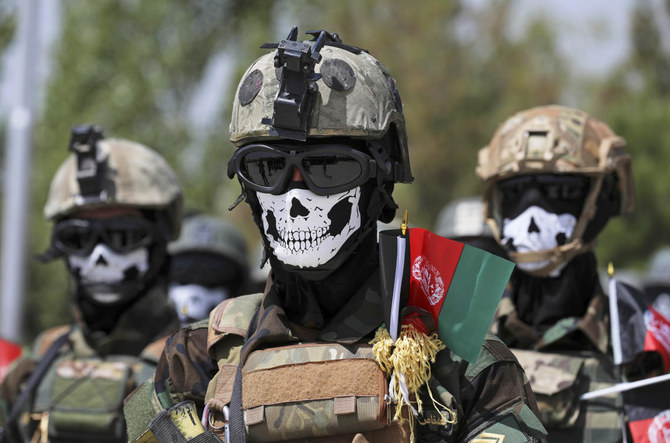
- Russia looking to attract thousands of the former elite Afghan commandos into a ‘foreign legion’ with offers of steady $1,500-a-month payments
- Retired CIA officer Michael Mulroy: ‘We didn’t get these individuals out as we promised, and now it’s coming home to roost’
India BJP’s election videos targeting Muslims and opposition spark outrage
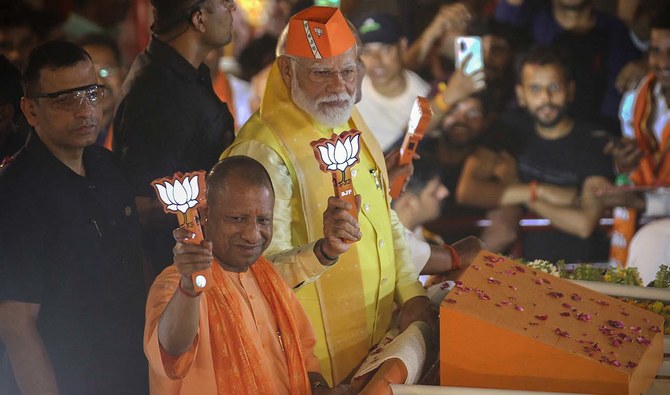
- Videos shared by BJP depict Congress giving disproportionate benefits to Muslims over tribal and Hindu groups
- Manipulated videos have become contentious issue in polls, such as fake videos of top Bollywood stars criticizing Modi
NEW DELHI, May 6 : Animated videos shared by Prime Minister Narendra Modi’s party targeting opposition Congress and the Muslim community have evoked complaints and outrage, as the political climate in India heats up midway through its six-week long election.
The videos, shared by the ruling Bharatiya Janata Party on social media platforms Instagram and X over the last ten days, depict the Congress giving disproportionate benefits to India’s minority Muslim community, at the cost of certain disadvantaged tribal and Hindu caste groups.
The Congress, in a complaint to the poll watchdog Election Commission, said on Sunday that the video has been shared “clearly with an intention to wantonly provocate rioting and promote enmity between different religions.”
A set of guidelines mutually adopted by political parties for how they should conduct themselves during the election period prohibit them from creating “mutual hatred” between caste, religious or linguistic groups.
Manipulated videos on social media have also become a contentious issue in this election, such as fake videos showing top Bollywood stars criticizing the prime minister.
On Monday, the commission warned parties against the misuse of AI tools to create deep fakes and told them not to publish and circulate such videos. It also said parties had been directed to remove such content within three hours of it being brought to their notice.
Modi, the face of the Hindu-nationalist BJP, seeking a rare third consecutive term, had focused his campaign largely on his government’s performance on economic growth and welfare benefits.
But he changed tack after the first phase of voting on April 19 and his campaign speeches have since become more polarizing on religious lines, accusing Congress of planning to redistribute the wealth of the majority Hindus among minority Muslims, who he called “infiltrators” who have “more children.”
The videos shared by the BJP over the last ten days, one of which has since been taken down, illustrated the same message.
A 17-second video shared by a state unit of BJP on May 4, with over 8.5 million views, shows a character resembling Congress leader Rahul Gandhi feeding “funds” to a bird in a skullcap, which eventually pushes out from their common nest three other birds representing other disadvantaged groups.
The Congress has filed a police complaint against BJP leaders for the video, BJP’s head of information and technology Amit Malviya said on X.
“The Congress should in fact thank the BJP for taking their manifesto to the people in a manner that even they couldn’t,” he wrote.
The video has elicited outrage. Nitasha Kaul, a politics professor at London’s Westminster University said on X that the video was a “straightforward 1930s Germany style cartoon.”
In its manifesto for the elections, the Congress has promised to tackle India’s economic inequality by conducting a socio-economic caste census and extending affirmative action. It said it will ensure that minorities receive “their fair share” of education, economic and health care opportunities.
An Election Commission spokesperson, the BJP’s Malviya and Congress spokespersons did not respond to requests seeking comment.
Bangladeshi students rally in solidarity with global student movement against Israel
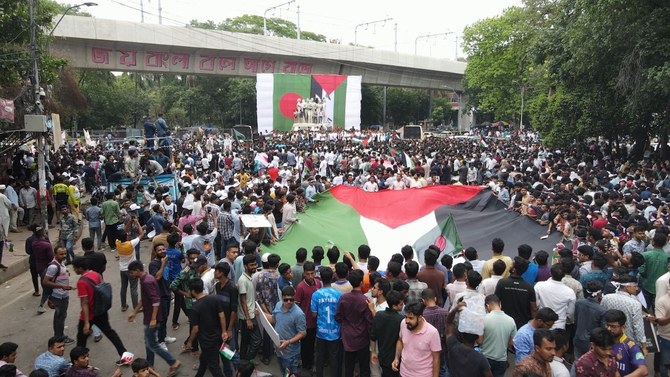
- US student protests have sparked more around the world, including in India, France, Australia
- Dhaka’s thousands-strong rally took place at Bangladesh’s largest, oldest tertiary institution
DHAKA: Thousands of people protesting Israel’s war on Gaza rallied at one of Bangladesh’s top universities on Monday in solidarity with the student-led protests and occupations sweeping the globe.
Pro-Palestinian student leaders and activists from different universities marched and carried flags of Bangladesh and Palestine, chanting slogans in solidarity with Gaza as they made their way to Dhaka University, Bangladesh’s largest and oldest tertiary institution.
Their protest culminated at the symbolic Aparajeyo Bangla sculpture, one of the most well-known landmarks dedicated to the Bangladesh Liberation War of 1971.
“Our stance is very clear: We express solidarity in support of a free Palestine state, in favor of a world free from war. And we support the demands made by US students, like divestment from Israel and other organizations that support the Israeli aggression,” Saddam Hussain, president of the organizing student group Bangladesh Students’ League, told Arab News.
They are also rallying in solidarity with the global student movement, he added.
“We believe all protests hold the same spirit of the youth, be it on the banks of the Atlantic or here on the bank of River Padma,” he said.
“The youths around the world have a common dream, and I urge all of them to move forward to make this dream come true. I hope all the youths of the world will join in this protest to build a world free from war, free and guided with humanitarian spirit.”
The Israeli strikes on Gaza that began in October have killed nearly 35,000 people in the Palestinian territory, mostly women and children. The leader of the World Food Program said over the weekend that parts of the Gaza strip were experiencing a “full-blown famine” that was spreading across the besieged enclave.
Students started to rally or set up tents at various universities around the US last month to protest Israel’s war on Gaza, sparking a global solidarity movement among the youth in India, Australia, France and elsewhere, with many putting pressure on their administrators and governments to cut ties with Tel Aviv.
While US colleges have seen protests since October, the unrest has escalated in recent weeks after police arrested pro-Palestine demonstrators at an encampment in Columbia University, sparking even more campsites at other campuses, as well as more crackdowns and arrests.
Unlike in the US, students in Dhaka were able to protest peacefully with scant police presence.
“The US and some other big players always speak in favor of freedom of speech. But what we have seen in the university campuses in the US is a shame for world leaders,” Solaiman Khan, a 23-year-old Dhaka University student, told Arab News.
“It’s a double standard. We, the youth (of Bangladesh), came out to the streets against this sort of hypocrisy from the superpowers of the world.”
Khan said the violence against Palestinians must be “stopped now and forever.”
“We have seen enough atrocities done by the Israeli forces. How many more lives must the world lose? Is it not enough?” he said.
“I think world leaders should come to their senses and act more rationally in stopping the atrocities in Gaza orchestrated by the occupying Israeli forces. Now is the time to play a decisive role. Otherwise, the next generation will not forgive us.”
Pro-Palestine Oxbridge students set up encampments

- They are demanding transparency about the universities’ financial links to Israel
- ‘We will not move until our demands are met’
LONDON: Students at the universities of Oxford and Cambridge have set up encampments in support of Palestine, The Times reported on Monday.
Around 50 have refused to leave the lawn of King’s College, Cambridge, while students have also declared a “liberated zone” outside Oxford’s Pitt Rivers Museum.
A banner hung outside King’s College read: “Welcome to the people’s university for Palestine.” Chants of “stop the bombing now” have also been heard on the campus.
The protests have been organized by Oxford Action for Palestine and Cambridge for Palestine.
They are demanding transparency about the universities’ financial links to Israel, which they have described as a “settler colonial state,” and are calling for the end of all investments and endowments from Israeli and Israel-linked companies.
“We have set up camp in university grounds, and we will not move until our demands are met,” the groups said in a statement, adding that the universities are legitimate targets for protests because of their “role in the British empire and its disastrous colonial legacies.”
The Times reported that protesters had been given an itinerary for their involvement including “de-escalation training” and “banner-making.”
A spokesperson for Cambridge University said it is for the college to decide whether to call the police, adding: “The university is fully committed to academic freedom and freedom of speech within the law and we acknowledge the right to protest.
“We ask everyone in our community to treat each other with understanding and empathy. Our priority is the safety of all staff and students.
“We will not tolerate antisemitism, Islamophobia and any other form of racial or religious hatred, or other unlawful activity.”
The relatively small UK protests come after nearly 2,000 people were arrested across the US after widespread demonstrations on over 130 American university campuses about Israel’s ongoing war in Gaza.
Muslim group issues UK Labour Party leader with demands over Gaza
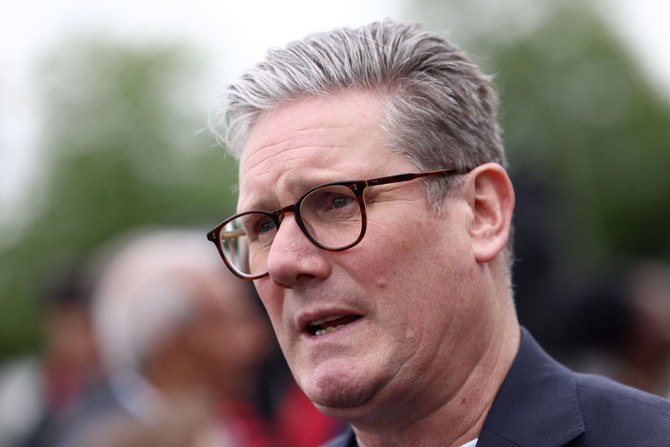
- Muslim Vote group calls for ‘real action’ to regain trust
- Support for Labour in recent local elections fell in areas with high Muslim populations
LONDON: Pro-Palestinian activists have presented a list of 18 demands to the leader of Britain’s opposition Labour Party and said they will not vote for the party at the next general election if he does not fulfill them.
The Muslim Vote, a campaign to get Muslim voters to back pro-Palestine candidates, has called for Sir Keir Starmer to promise to cut military ties with Israel, implement a travel ban on Israeli politicians involved in the war in Gaza and impose sanctions on companies operating in occupied territories.
The group told Starmer he must commit to “real action” and deliver on its requests if he was “serious” about his pledge to rebuild trust with those angered by his stance on the conflict in Gaza, The Telegraph reported.
Supporters would vote for the Green Party or Liberal Democrats if he could not commit to their demands, it said.
Labour’s campaign chief Pat McFadden acknowledged that Starmer’s approach to the conflict had cost the party votes at last week’s local elections. Support for Labour dropped dramatically in areas with a high Muslim populations, including Oldham in Greater Manchester, where the party lost overall control of the council in a shock defeat.
After the result, Starmer said he was determined to regain the trust of those who abandoned Labour as a result of his stance on the Gaza war but did not make any concrete pledges on the matter.
The Muslim Vote challenged Starmer with committing to the 18 demands and implementing them should he become the next prime minister.
They include removing the definition of extremism introduced by Secretary of State for Leveling Up, Housing and Communities Michael Gove and issuing guidance that allows Muslims to pray at school.
Philippines rules out use of water cannon in disputed South China Sea

- Philippines and China have clashed several times in disputed, resource-rich waterway
- Latest skirmish took place late last month, in an incident Manila describes as dangerous
MANILA: President Ferdinand Marcos Jr. said on Monday that Manila will not use offensive equipment in the disputed South China Sea, after China’s coast guard used high-pressure water cannon on Philippine vessels last week.
The Philippines and China have had several confrontations in the resource-rich area, where Beijing has used water cannon against Filipino vessels in incidents Manila has described as harassment and dangerous.
The latest in a string of maritime clashes occurred on April 30 as tensions continued to rise in the vital waterway that Beijing claims almost in its entirety despite a 2016 international arbitration ruling that rejected its assertion.
“What we are doing is defending our sovereign rights and our sovereignty in the West Philippine Sea. And we have no intention of attacking anyone with water cannons or any other such offensive (weapons),” Marcos said Monday.
“We will not follow the Chinese coast guard and the Chinese vessels down that road because it is not the mission of the navy (or) our coast guard to start or to increase tensions … Their mission is precisely the opposite, it’s to lower tensions.”
Philippine vessels have been regularly targeted by Chinese ships in areas of the South China Sea that are internationally recognized as belonging to the Philippines, which Manila calls the West Philippine Sea.
The Philippines’ Ministry of Foreign Affairs last Thursday summoned Zhou Zhiyong, China’s deputy chief of mission, after the incident left a Philippine coast guard vessel and another government boat damaged.
It was the 20th protest Manila has made against Beijing’s conduct in the South China Sea this year alone, while more than 150 diplomatic complaints have been made over the past two years.
Marcos said the Philippines will continue to respond to South China Sea incidents through diplomatic means.
Marcos’s statement comes days after the defense ministers of the Philippines, the US, Japan and Australia met in Hawaii and issued a joint statement on their strong objections to the “dangerous and destabilizing conduct” of China in the South China Sea.









